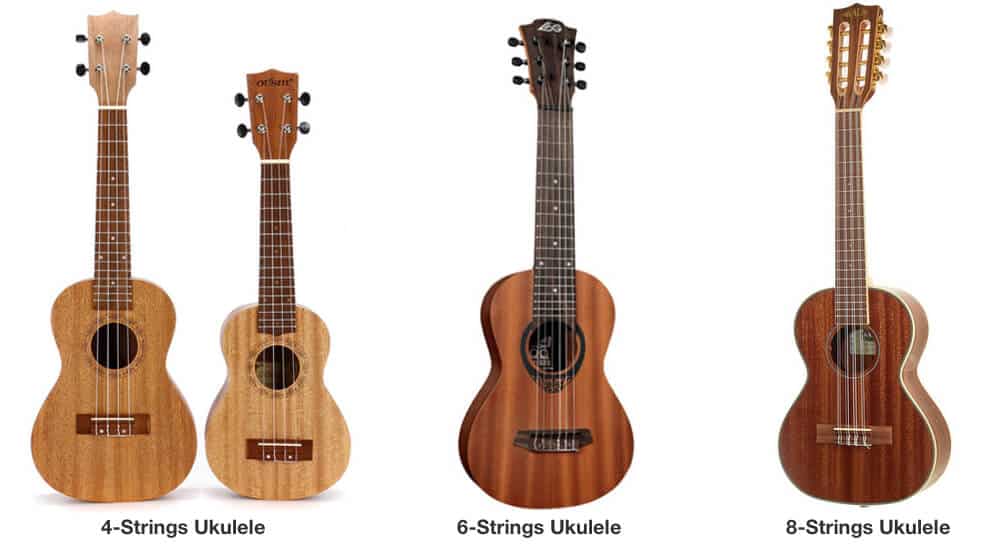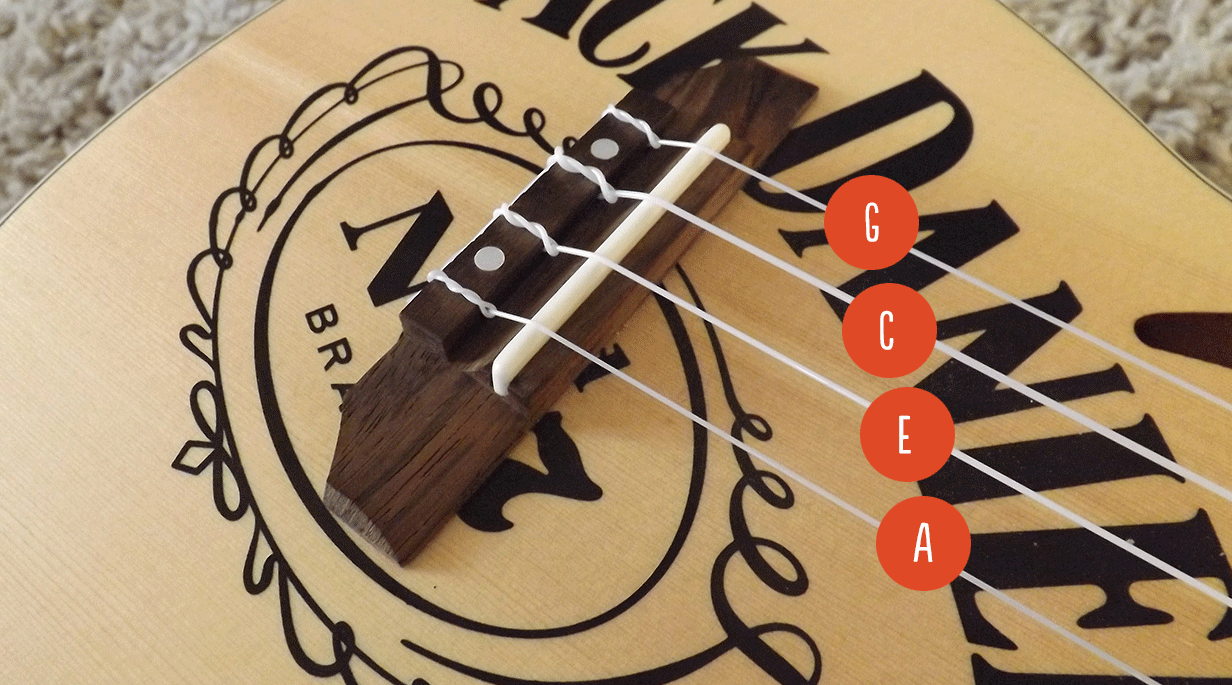Ukulele strings typically cost between $5 and $15 per set. Prices vary depending on the brand, material, and quality.
Picking the right strings for your ukulele is essential for achieving the perfect sound and playability. Whether you’re a beginner strumming your first chords or a seasoned player performing intricate pieces, the choice of strings can dramatically affect your instrument’s tone.
With the ukulele’s popularity soaring, there is a vast array of string options available to suit different preferences and playing styles. Quality strings are an investment in your instrument’s performance, ensuring clarity of sound and comfortable finger placement. Investing in a good set of strings can make all the difference, ensuring that each note rings true and your music resonates with audiences. Keep in mind that the best strings for your ukulele will harmonize with your personal playing style and the unique voice of your instrument.
Striking A Chord: The Cost Of Ukulele Strings
Ukulele enthusiasts often ponder the price of new strings. Just like the sweet sound they produce, the cost of ukulele strings can hit a range of notes. Whether a beginner or a pro, knowing the price can help you budget for your musical journey.
Factors Influencing String Prices
The price of ukulele strings does not have a single note. It plays a melody of various aspects. Material, brand, and ukulele size all impact the cost. Let’s explore these factors:
- Material: Strings come in nylon, fluorocarbon, and wound materials. Each offers a unique tone and feel.
- Brand: Popular brands may charge more for their reputation and quality.
- Ukulele Size: Soprano, concert, tenor, or baritone, each requires strings of different lengths and gauges.
Price Range For Different Types
Different string types pull on the purse strings differently. Here’s a glance at what you might expect to pay:
| Type | Average Price |
|---|---|
| Nylon Strings | $5 – $10 |
| Fluorocarbon Strings | $10 – $20 |
| Wound Strings | $15 – $25 |
Remember, prices can vary based on the seller and location. Shop around to strike the best deal.

Credit: ukuleleunderground.com
Material Matters: Types Of Ukulele Strings
When choosing strings for a ukulele, players often consider sound, playability, and durability. These characteristics are influenced by the string materials. Different materials can change the tone and feel of a ukulele.
Nylon Strings: Classic Choice
Nylon strings stand out as the traditional choice for ukulele players. They deliver a warm, mellow tone that’s perfect for the classic ukulele sound. Known for their flexibility, nylon strings are also gentle on the fingers, making them ideal for beginners.
- Durable and resilient
- More sensitive to temperature changes
- Require more frequent tuning
Fluorocarbon Strings: Modern Upgrade
Embraced by musicians seeking a crisper, brighter sound, fluorocarbon strings serve as a modern twist on ukulele strings. They tend to be more responsive and have a higher tensile strength for improved tuning stability.
- Resistant to fluctuations in humidity and temperature
- Less stretchy, so less re-tuning needed
- Produce a loud, clear tone
Wound Strings: Unique Tone
Wound strings are known for their rich and full sound, with a strong presence in the lower notes. Often used for the lower strings on a ukulele, they are made by winding metal around a core, usually nylon or fluorocarbon.
- Offer a resonant, bass-heavy sound
- More prone to squeaking noises
- Provide a contrasting texture to the touch
| String Type | Tone | Playability | Durability |
|---|---|---|---|
| Nylon | Warm, Mellow | Soft, Gentle on Fingers | Good, But Climate Sensitive |
| Fluorocarbon | Bright, Crisp | Responsive, Consistent | Excellent, Climate Resistant |
| Wound | Rich, Full | Textured Feel, Squeak Potential | Varies, May Wear Faster |
Brand Power: How Manufacturers Influence Cost
Ukulele strings may seem like a small purchase, but the manufacturer’s brand can greatly affect the price. Brand power plays a pivotal role in how much you pay. Let’s dive into how the reputation and offerings of different brands shape the cost of ukulele strings.
Premium Brands Vs Budget-friendly Options
Premium brands command higher prices, often due to their high-quality materials and advanced technology. Famous names in the ukulele world such as Aquila and Martin guarantee strings that provide rich, long-lasting tones. Players trust these brands for their consistent quality.
In contrast, budget-friendly options are available for beginners or those looking to save money. Brands like Lanikai and Kala offer affordable alternatives that still maintain good quality sound. These strings are perfect for everyday practice or those who change their strings frequently.
Warranty And Brand Reputation
The reputation of a ukulele string brand can influence cost in a significant way. A trusted brand name not only provides assurance of quality but often includes a warranty. This warranty can cover defects or issues, giving players peace of mind and value for their money.
Manufacturers like D’Addario offer warranties, while also maintaining a strong reputation for customer service and product excellence. This contributes to a higher perceived value, and thus, might come with a heftier price tag. Yet, the reliability they offer often justifies the extra cost.

Credit: guitartunio.com
Sizing Up: Prices By Ukulele Size
Ukulele players know that size matters. Different ukuleles produce different sounds. The size affects not just the tone, but the string price too. Let’s explore how much ukulele strings may cost for different ukulele sizes.
Soprano And Concert Ukuleles: Standard Sizes
Soprano and concert ukuleles are the go-to for beginners. They’re light and portable. Their strings are more affordable too. Here’s a quick price rundown:
- Basic Nylon Strings – Generally range from $4 to $10.
- Advanced Fluorocarbon – Prices can be slightly higher, from $8 to $15.
Brands like Aquila and Martin are top picks for these ukuleles. Their strings balance quality with cost.
Tenor And Baritone Ukuleles: Larger Options
For the tenor and baritone ukuleles, strings reach a different pitch. These larger ukes need thicker strings. This can affect the price. Here’s what to expect:
- Tenor String Sets – These can start from $6 and go up to $20 or more.
- Baritone Strings – They are the largest, starting at $7 and can exceed $25.
Premium options might include titanium or wound strings. They offer a richer tone but at a higher cost.
| Ukulele Size | Price Range |
|---|---|
| Soprano/Concert | $4 – $15 |
| Tenor | $6 – $20+ |
| Baritone | $7 – $25+ |
Changing Strings: Additional Costs To Consider
When you play the ukulele, fresh strings can make a world of difference in sound quality. Understanding the additional costs associated with changing strings is essential. This goes beyond just purchasing new strings. Let’s dive into what else you might need to spend money on.
Installation And Maintenance Expenses
Changing ukulele strings isn’t just about the cost of the strings themselves. You might also need to pay for professional installation, especially if you’re not comfortable doing it yourself. Here’s what to keep in mind:
- Professional Installation: A music shop might charge $10 to $40.
- Tools: Investing in a string winder or cutter could be around $5 to $20.
- Cleaning Supplies: To keep strings pristine, expect $5 to $15 for a cleaner.
Maintenance tools help prolong the life of your strings and ensure your ukulele sounds its best.
Lifetime Of Strings And Frequency Of Replacement
The lifetime of ukulele strings varies widely. Here’s a snapshot:
| String Type | Expected Lifetime | Replacement Frequency |
|---|---|---|
| Nylon | 4-6 months | Twice a year |
| Fluorocarbon | 6-12 months | Once to twice a year |
| Titanium | 6-12 months | Once to twice a year |
Remember, frequent players may need to replace strings more often. Always have spare strings on hand just in case.
Maintaining your instrument’s strings ensures enjoyable play and quality sound. Keep these factors in mind to budget for long-term ukulele care.

Credit: ukulelego.com
Finding The Right Strings: Where To Shop And What To Look For
Welcome to the useful guide on Finding the Right Strings: Where to Shop and What to Look For. Your ukulele’s voice depends on the strings you choose. This section will cover where to buy them and key points to consider.
Online Retailers Vs Local Music Stores
Choosing where to buy ukulele strings is about convenience and preference. Let’s compare options:
- Online Retailers:
| Variety | Wide selection from different brands |
| Reviews | Access to customer feedback |
| Deals | Look out for discounts and bundles |
- Local Music Stores:
| Expertise | Staff can offer personalized advice |
| Community | Support local businesses and connect with musicians |
| Product Feel | Physically check string quality and gauge |
Consider your priorities to choose the best source for your strings.
Reading Reviews And Seeking Recommendations
Making an informed decision is vital. Read reviews and seek recommendations:
- Read Reviews: Look at ratings and experiences shared by other ukulele players.
- Ask the Community: Engage with forums or social media groups for first-hand advice.
- Quality Matters: Ensure strings are durable and produce the sound you desire.
Strong recommendations often lead to satisfying purchases.
Are the Length and Cost of Ukulele Strings Related?
When it comes to ukulele string length options, there isn’t a direct correlation between length and cost. While longer strings may require more material and be slightly more expensive, the overall cost is influenced by various factors such as brand, material, and manufacturing process.
Frequently Asked Questions For How Much Are Ukulele Strings
How Much Does It Cost To String A Ukulele?
The cost to restring a ukulele typically ranges from $4 to $20 for the strings, plus approximately $15 to $40 for professional stringing services.
Is It Hard To Restring A Ukulele?
Restringing a ukulele is not hard with the correct tools and instructions. Beginners can learn quickly through online tutorials or guides.
How Long Do Strings Last On A Ukulele?
Ukulele strings typically last 3 to 6 months with regular play. Replace them once they lose tone or show wear.
Are All 4 Ukulele Strings The Same?
No, ukulele strings are not all the same. Each string has a unique thickness and note, typically tuned to G, C, E, and A.
Conclusion
Ukulele strings are an affordable upgrade for any uke enthusiast. Prices vary, starting from a few dollars to premium options. Remember, the right strings enhance sound and playability. Choose wisely to strike the perfect chord with your budget and musical needs.
Keep strumming happily!
{ “@context”: “https://schema.org”, “@type”: “FAQPage”, “mainEntity”: [ { “@type”: “Question”, “name”: “How much does it cost to string A ukulele?”, “acceptedAnswer”: { “@type”: “Answer”, “text”: “The cost to restring a ukulele typically ranges from $4 to $20 for the strings, plus approximately $15 to $40 for professional stringing services.” } } , { “@type”: “Question”, “name”: “Is it hard to restring A ukulele?”, “acceptedAnswer”: { “@type”: “Answer”, “text”: “Restringing a ukulele is not hard with the correct tools and instructions. Beginners can learn quickly through online tutorials or guides.” } } , { “@type”: “Question”, “name”: “How long do strings last on A ukulele?”, “acceptedAnswer”: { “@type”: “Answer”, “text”: “Ukulele strings typically last 3 to 6 months with regular play. Replace them once they lose tone or show wear.” } } , { “@type”: “Question”, “name”: “Are all 4 ukulele strings the same?”, “acceptedAnswer”: { “@type”: “Answer”, “text”: “No, ukulele strings are not all the same. Each string has a unique thickness and note, typically tuned to G, C, E, and A.” } } ] }As an Amazon Associate, Cleanestor earns from qualifying purchases at no additional cost to you.

